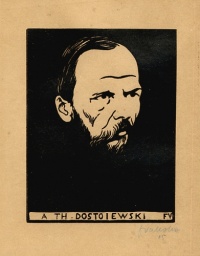World literature
From The Art and Popular Culture Encyclopedia
| Revision as of 18:57, 13 May 2014 Jahsonic (Talk | contribs) ← Previous diff |
Current revision Jahsonic (Talk | contribs) |
||
| Line 3: | Line 3: | ||
| [[Image:A Young Girl Reading.jpg|thumb|right|200px|''[[A Young Girl Reading]]'' (c.[[1776]]) by [[Jean-Honoré Fragonard |Fragonard]]]] | [[Image:A Young Girl Reading.jpg|thumb|right|200px|''[[A Young Girl Reading]]'' (c.[[1776]]) by [[Jean-Honoré Fragonard |Fragonard]]]] | ||
| {{Template}} | {{Template}} | ||
| - | '''World literature''' refers to literature from all over the world, including [[African literature]], [[Arabic literature]], [[American literature]], [[Latin-American literature]], [[Caribbean Literature]], [[Asian literature]], [[European literature]] and [[Australasian literature]]. | + | '''World literature''' refers to literature from all over the world, including [[African literature]], [[American literature]], [[Latin American literature]], [[Asian literature]] and [[European literature]]. |
| ==History== | ==History== | ||
| - | [[Johann Wolfgang von Goethe]] introduced the concept of ''Weltliteratur'' in 1827 to describe the growing availability of texts from other nations, including translations from [[Sanskrit literature|Sanskrit]], [[Islamic literature|Islamic]] and [[Serbia]]n [[epic poetry]]. [[Karl Marx]] and [[Friedrich Engels]] used the term in their ''[[Communist Manifesto]]'' (1848) to describe the "cosmopolitan character" of bourgeois literary production. | + | [[Johann Wolfgang von Goethe]] introduced the concept of ''Weltliteratur'' in 1827 in ''[[Über Kunst und Altertum]]'' to describe the growing availability of texts from other nations, including translations from [[Sanskrit literature|Sanskrit]], [[Islamic literature|Islamic]] and [[Serbia]]n [[epic poetry]]. [[Karl Marx]] and [[Friedrich Engels]] used the term in their ''[[Communist Manifesto]]'' (1848) to describe the "cosmopolitan character" of bourgeois literary production. |
| Although anthologies of "world literature" have often used the term to market a largely [[European canon]], the past three decades have given rise to a much more expansive conception of literary interest and value. Recent books such as [[David Damrosch]]'s ''[[What Is World Literature?]]'', for instance, define world literature as a category of literary production, publication and circulation, rather than using the term evaluatively. Arguably, this is closer to the original sense of the term in [[Goethe]] and [[Marx]]. | Although anthologies of "world literature" have often used the term to market a largely [[European canon]], the past three decades have given rise to a much more expansive conception of literary interest and value. Recent books such as [[David Damrosch]]'s ''[[What Is World Literature?]]'', for instance, define world literature as a category of literary production, publication and circulation, rather than using the term evaluatively. Arguably, this is closer to the original sense of the term in [[Goethe]] and [[Marx]]. | ||
Current revision
|
Related e |
|
Featured: |
World literature refers to literature from all over the world, including African literature, American literature, Latin American literature, Asian literature and European literature.
History
Johann Wolfgang von Goethe introduced the concept of Weltliteratur in 1827 in Über Kunst und Altertum to describe the growing availability of texts from other nations, including translations from Sanskrit, Islamic and Serbian epic poetry. Karl Marx and Friedrich Engels used the term in their Communist Manifesto (1848) to describe the "cosmopolitan character" of bourgeois literary production.
Although anthologies of "world literature" have often used the term to market a largely European canon, the past three decades have given rise to a much more expansive conception of literary interest and value. Recent books such as David Damrosch's What Is World Literature?, for instance, define world literature as a category of literary production, publication and circulation, rather than using the term evaluatively. Arguably, this is closer to the original sense of the term in Goethe and Marx.
World literature is conceptually similar to world cinema, world art and world music.
See also
- Classic book
- Bestseller
- Comparative literature
- Index Translationum
- Literature by country
- List of world folk-epics
- History of literature
- Print culture
- Translation



